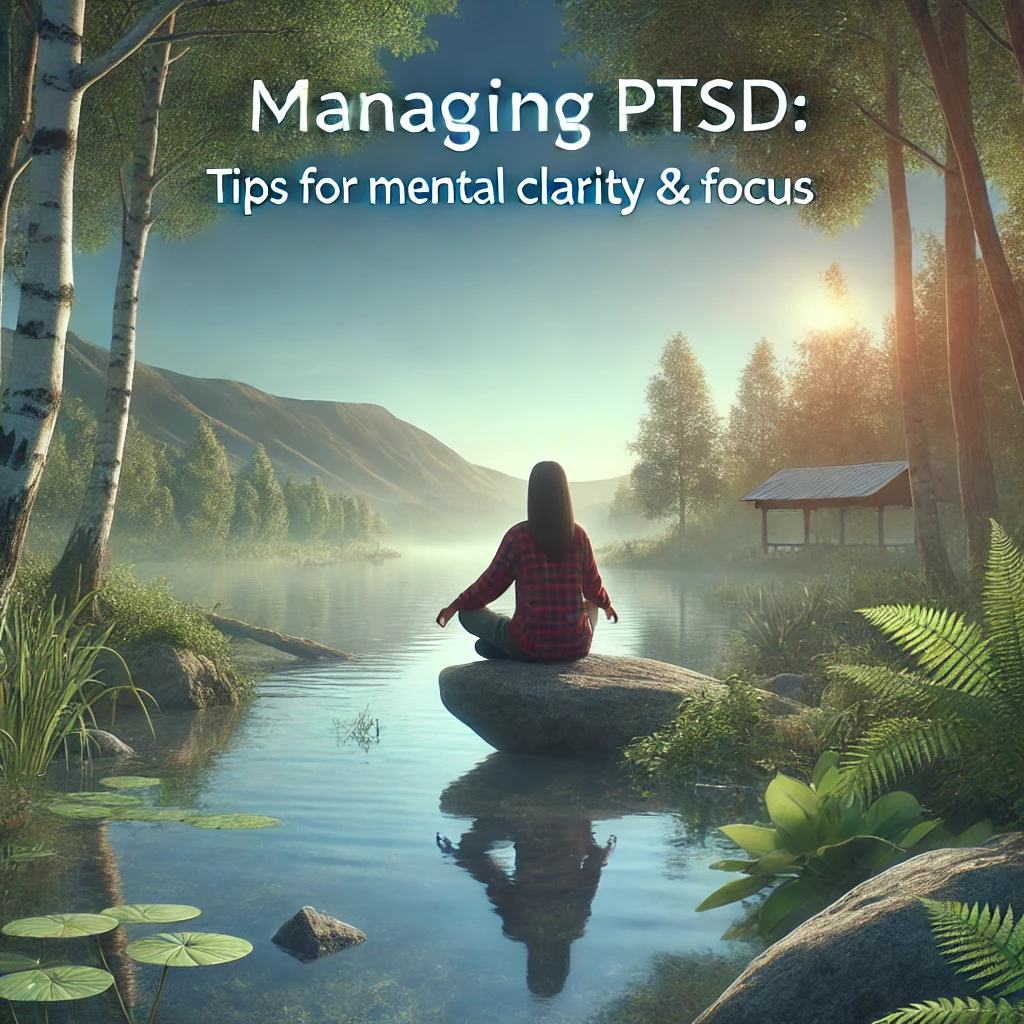Have you ever felt trapped in a loop of overwhelming thoughts, unable to focus on the present moment? For those living with Post-Traumatic Stress Disorder (PTSD), maintaining mental clarity and focus can feel like an uphill battle. Flashbacks, anxiety, and emotional distress can make even the simplest tasks challenging. However, managing PTSD effectively is possible with the right strategies.
In this article, we’ll explore practical tips to enhance mental clarity and focus, helping individuals regain control over their thoughts and daily lives.
Understanding PTSD and Its Impact on Focus
PTSD is a mental health condition triggered by experiencing or witnessing a traumatic event. Symptoms can include intrusive thoughts, nightmares, heightened anxiety, emotional numbness, and difficulty concentrating. When the brain remains in a heightened state of alertness due to trauma, staying focused becomes a struggle.
To improve cognitive function and regain mental clarity, it is crucial to adopt techniques that promote emotional regulation and mindfulness.
Tips for Managing Mental Clarity and Focus with PTSD
1. Practice Grounding Techniques
Grounding techniques help shift attention away from distressing thoughts and bring focus back to the present. Some effective methods include:
- 5-4-3-2-1 Technique: Identify five things you see, four things you can touch, three things you hear, two things you smell, and one thing you taste.
- Deep Breathing Exercises: Inhale deeply through your nose for four seconds, hold for four seconds, and exhale for four seconds.
2. Establish a Structured Routine
A predictable daily schedule reduces anxiety and provides a sense of control. Consider:
- Setting specific times for work, meals, and relaxation
- Using a planner or digital reminders to stay organized
3. Engage in Mindfulness and Meditation
Mindfulness techniques train the brain to focus on the present, reducing intrusive thoughts. Practices such as guided meditation, progressive muscle relaxation, and mindful breathing can help restore focus.
4. Maintain a Healthy Lifestyle
Proper nutrition, exercise, and sleep play a significant role in cognitive function.
- Exercise: Engaging in physical activity, such as yoga or walking, releases endorphins that combat stress.
- Diet: Consuming brain-boosting foods rich in omega-3s, antioxidants, and vitamins supports mental clarity.
- Sleep Hygiene: Establish a bedtime routine, avoid screen time before bed, and create a comfortable sleeping environment.
5. Limit Stimulants and Distractions
Reducing caffeine intake, avoiding social media distractions, and creating a clutter-free environment can significantly improve focus.
6. Seek Professional Support
Therapists specializing in PTSD can provide cognitive-behavioral therapy (CBT) and other treatment options tailored to individual needs. Additionally, joining support groups can offer a sense of community and shared coping strategies.
Conclusion
Regaining focus and mental clarity while managing PTSD is a gradual process. Through mindfulness, routine, grounding exercises, and professional support, individuals can regain control over their thoughts and improve cognitive function. Remember, healing takes time, but small daily efforts can lead to significant progress.
References
- American Psychological Association. (2021). Understanding Post-Traumatic Stress Disorder. Retrieved from www.apa.org
- National Institute of Mental Health. (2020). Post-Traumatic Stress Disorder: Symptoms and Treatment. Retrieved from www.nimh.nih.gov
- Hoge, C. W., Yehuda, R., McFarlane, A. C., & Vermetten, E. (2016). PTSD Treatment and Cognitive Function. Journal of the American Medical Association (JAMA), 316(3), 350-351.
- Bryant, R. A. (2019). The Complexity of Post-Traumatic Stress Disorder: Beyond DSM-5. Journal of Clinical Psychiatry, 80(2), 1-5.




